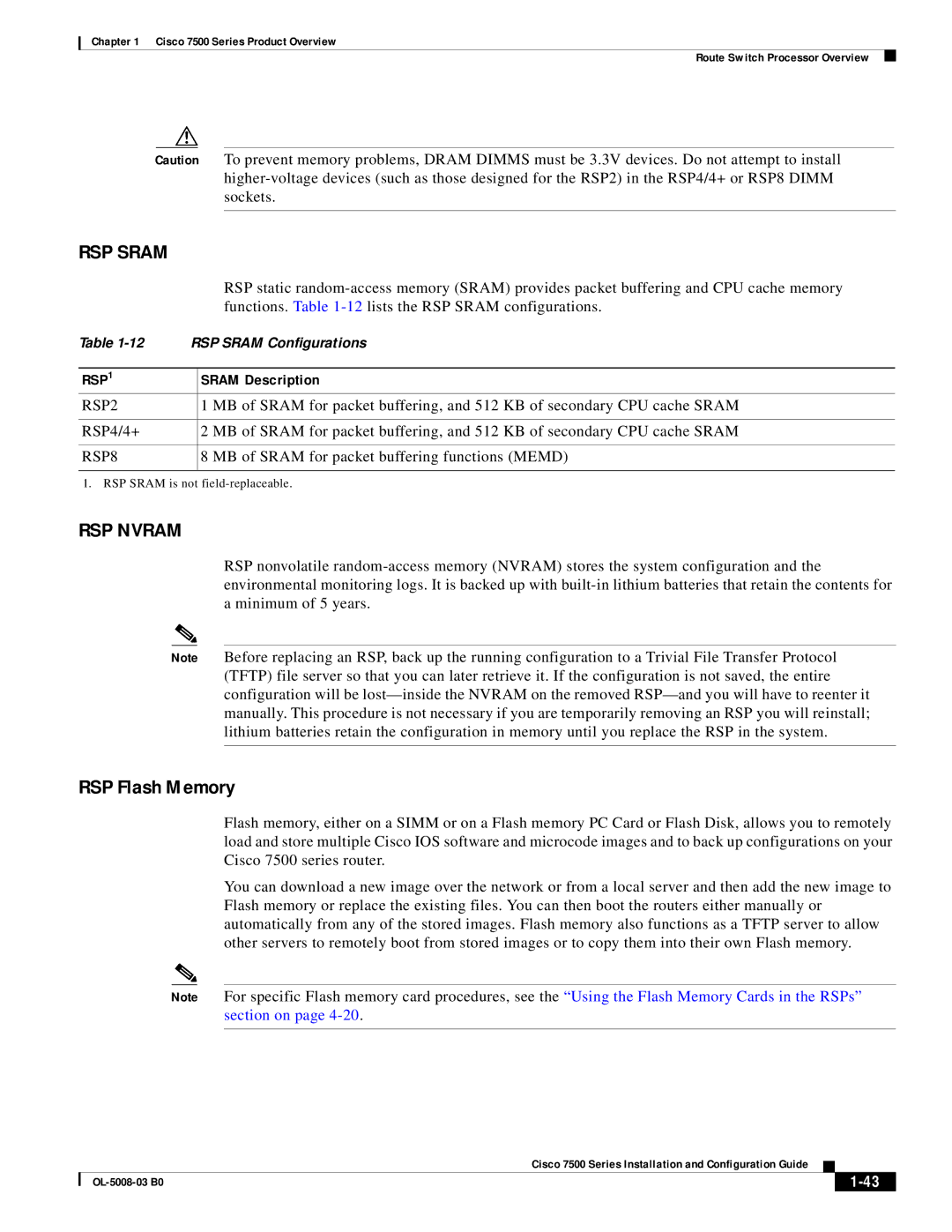
Chapter 1 Cisco 7500 Series Product Overview
Route Switch Processor Overview
Caution To prevent memory problems, DRAM DIMMS must be 3.3V devices. Do not attempt to install
RSP SRAM
RSP static
Table | RSP SRAM Configurations | ||
|
|
| |
RSP1 |
| SRAM Description | |
RSP2 |
| 1 | MB of SRAM for packet buffering, and 512 KB of secondary CPU cache SRAM |
|
|
|
|
RSP4/4+ |
| 2 | MB of SRAM for packet buffering, and 512 KB of secondary CPU cache SRAM |
|
|
|
|
RSP8 |
| 8 | MB of SRAM for packet buffering functions (MEMD) |
|
|
|
|
1. RSP SRAM is not
RSP NVRAM
RSP nonvolatile
Note Before replacing an RSP, back up the running configuration to a Trivial File Transfer Protocol (TFTP) file server so that you can later retrieve it. If the configuration is not saved, the entire configuration will be
RSP Flash Memory
Flash memory, either on a SIMM or on a Flash memory PC Card or Flash Disk, allows you to remotely load and store multiple Cisco IOS software and microcode images and to back up configurations on your Cisco 7500 series router.
You can download a new image over the network or from a local server and then add the new image to Flash memory or replace the existing files. You can then boot the routers either manually or automatically from any of the stored images. Flash memory also functions as a TFTP server to allow other servers to remotely boot from stored images or to copy them into their own Flash memory.
Note For specific Flash memory card procedures, see the “Using the Flash Memory Cards in the RSPs” section on page
|
| Cisco 7500 Series Installation and Configuration Guide |
|
| |
|
|
| |||
|
|
|
|
| |
|
|
|
| ||
